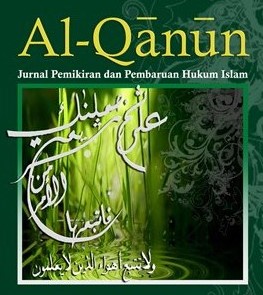Pemberdayaan Politik Santri pada Pilwali di Surabaya
DOI:
https://doi.org/10.15642/alqanun.2020.23.1.149-170Keywords:
Politic Santri, Pondok Pesantren SidoresmoAbstract
Abstract: The purpose of this paper is to answer the question that relating the practice of political empowerment and its socialization about Pilwali in Surabaya to the students at Pondok Pesantren Sidoresmo. The results of the study inferred that the practice of political empowerment and its socialization to the students are influenced by the study of fiqh siyasah books. Santri's behavior is circumscribed by two factors namely; the first factor is that the Santri's action is very dependent on the political preferences of the kyai due to the patron-client relationship between the kyai-santri. The second factor is the santri's political behavior is not bound by the kyai's political choice as the assumption of the freedom of choice in the political sphere. Pondok Pesantren Sidoresmo is truly empowering students in choosing their political aspirations in the 2005 Pilwali in Surabaya openly and actively without any element of coercion and always adheres to Islamic criteria, in which some scholars consider that the law in electing leaders (mayors) is obligatory, and the law concerning leader's appointment is fard al-kifayah
Downloads
References
Departemen Agama RI. Al-Qur’an Dan Terjemahannya. Semarang: Tanjung Mas Inti, 1992.
Dhofier, Zamakhsyari. Tradisi Pesantren: Studi tentang Pandangan Hidup Kyai. Jakarta: LP3S, 982.
Fadeli, Soeleiman, dan Mohammad Subhan. Antologi NU: Sejarah, Istilah, Amaliah, Uswah. Surabaya: Khalista, 2007.
Fathuri. “Hubungan Santri dan Kyai.” Diakses 20 Juni 2018. http:// islamlib. com/ id/ index. php? Page= article &id=626.
Hamidah, Roikhatul. “Posisi Ulama dalam Pemilihan Gubenur Jawa Timur Perspektif Fiqh Siyasah.” Al-Qanun: Jurnal Pemikiran dan Pembaharuan Hukum Islam 22, no. 2 (Desember 2019).
Hubet, Abdulla. “Peran Politik Perempuan Pondok Pesantren Ihyaul Ulum Dukun Gresik.” Al-Daulah: Jurnal Hukum dan Perundangan Islam 3, no. 1 (April 2013).
Idri. “Sistem Politik dan Pemerintahan Islam dalam Perspektif Abu al-A’la al-Maududy.” Jurnal Al-Qanun 11, no. 1 (Juni 2008).
KH. Mas Nidhomuddin Tholhah. Wawancara, t.t.
Kuntowijoyo. Paradigma Islam: Interpretasi untuk Aksi. Bandung: Mizan Publika, 2008.
Makin (Santri Pondok Yanabiul Ulum Sidoresmo). Wawancara, t.t.
Makinudin. “Resolusi Jihad di Indonesia Perspektif Ketatanegaraan dalam Al-Qur’an.” Al-Daulah: Jurnal Hukum dan Perundangan Islam 8, no. 1 (April 2018).
Marijan, Kacung. Demokratisasi di Daerah Pelajaran dari Pilkada Secara Langsung. Surabaya: Pustaka Eureka, 2006.
———. Quo Vadis NU: Setelah Kembali ke Kittah 1926. Jakarta: Erlangga, 1992.
Maskur (Guru di PonPes At-Tauhid Sidoresmo). Wawancara, t.t.
Masruhan. “Pemikiran Kyai NU tentang Relasi Agama dan Negara.” Jurnal Al-Qanun 12, no. 1 (Juni 2009).
Moesa, Ali Maschan. “Kiai NU dalam Peradigma Politik Kebangsaan.” Al-Daulah: Jurnal Hukum dan Perundangan Islam 2, no. 1 (April 2012).
Mubarok, Jaih. Fiqh Siyasah. Bandung: Pustaka Bani Quraisy, 2005.
Mulkhan, Abdul Munir. Moral Politik Santri. Jakarta: Erlangga, 2003.
———. Runtuhnya Mitos Politik Santri. Yogyakarta: SIPRESS, 1992.
———. “Syahwat Politik Kaum Santri.” Diakses 20 Juli 2019. http://id.shvoong.com/social-sciences/1691896-syahwat-politik-kaum-santri/.
Sholihuddin, Muh. “Negara Islam (Pemikiran Fikih Siyasah KH. Ibrahim Hosen).” Jurnal Al-Qanun 13, no. 1 (Juni 2010).
Syam, Nur. “Perilaku Politik Santri dalam Pemilihan Gubernur Jawa Timur,” 2007. http://eprints.sunan-ampel.ac.id/20/.
Turmudi, Endang. Perselingkuhan Kiai dan Kekuasaan. Yogyakarta: LKiS, 2004.






